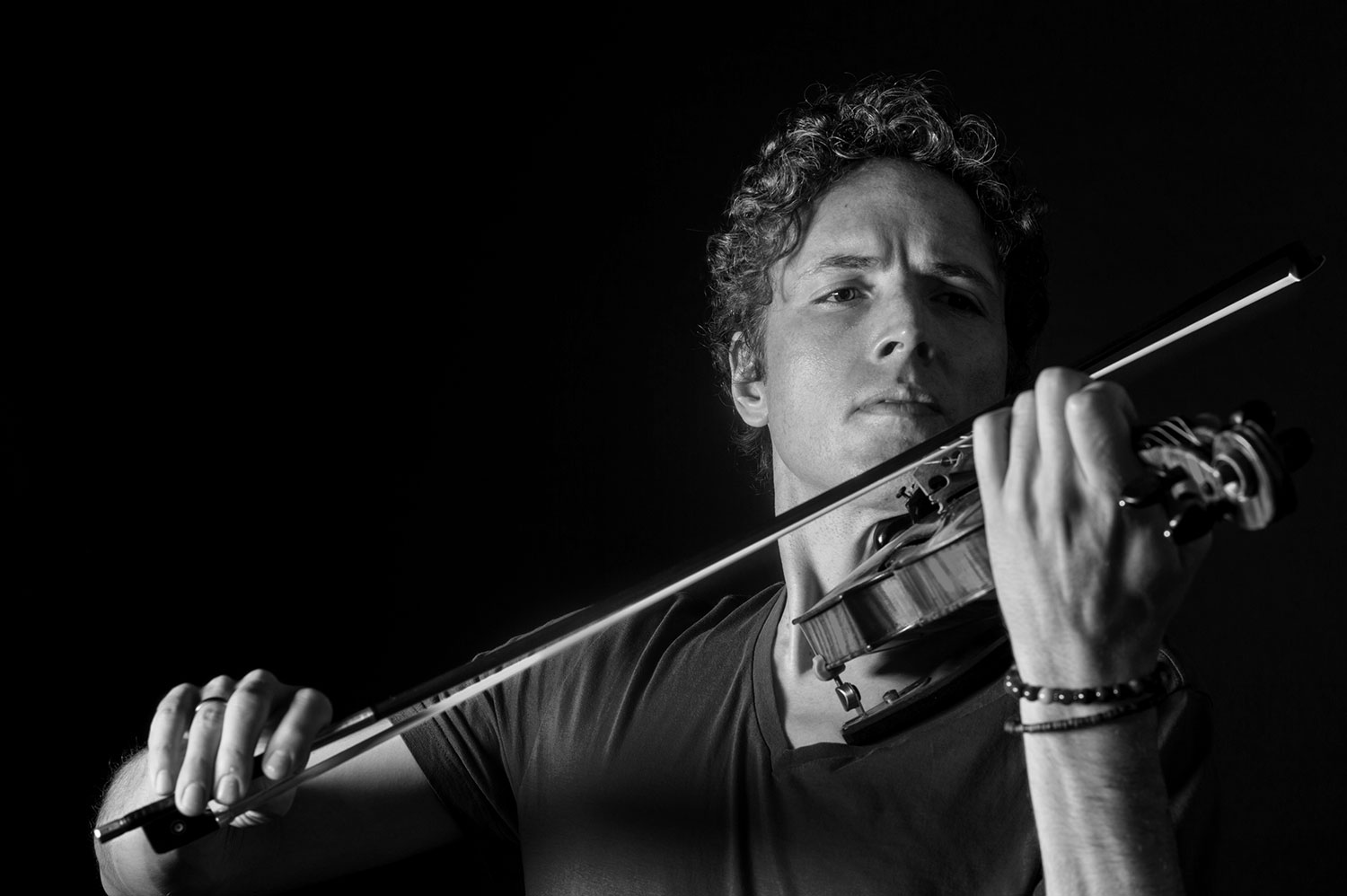The Helena Symphony continues SEASON 63 on Saturday, January 27 at 7:30 p.m. in the Helena Civic Center with world-renowned Violinist Tim Fain. Mr. Fain was seen on screen and heard on the Grammy-nominated soundtrack to the film Black Swan, can be heard on the soundtrack to Moonlight, and gave “voice” to the violin of the lead actor in the hit film 12 Years a Slave, as he did with Richard Gere’s violin in the film Bee Season.
A winner of an Avery Fisher Career Grant and recipient of the Young Concert Artists International Award, Mr. Fain has appeared internationally as soloist with the Baltimore Symphony and Cabrillo Festival with Marin Alsop, the Orchestra of St. Luke’s, Pittsburgh, Hague and Buffalo Philharmonics, Mostly Mozart Festival Orchestras, and National Orchestra of Spain. He has appeared in recitals in the world’s major music capitals, and has toured with musicians from Marlboro, as a member of the Chamber Music Society of Lincoln Center, and around the globe in a duo-recital program with Philip Glass. His multi-media solo evening Portals premiered to sold-out audiences on both coasts and continues to travel world-wide.
He has collaborated with an eclectic array of artists from Pinchas Zukerman and Mitsuko Uchida, the Mark Morris Dance Group and New York City Ballet, to Iggy Pop, Rob Thomas (Matchbox 20), and Bryce Dessner (The National). He has also performed for the Dalai Lama. Mr. Fain’s discography includes River of Light, (Naxos), and Philip Glass: The Concerto Project IV with The Hague Philharmonic. Tim Fain plays on Philip Glass (Orange Mountain Music) and First Loves (VIA). Tim Fain performs on a violin made by Francesco Gobetti, Venice 1717, the “Möller,” on extended loan from Clement and Karen Arrison through the generous efforts of the Stradivari Society of Chicago.
Mr. Fain makes his HSO debut performing the rustic vitality of Dvořák’s Violin Concerto. Born in a small Bohemian Czech village to an innkeeper and part-time butcher, Dvořák’s upbringing instilled in him a love for the countryside and its people, a love that he never lost, and a love that would be his greatest inspiration. Composed in 1879, Dvořák composes some of his greatest moments in all of his music with his Violin Concerto. It is rooted in the music that won him a respected reputation – nationalist music of his Czech background, syncopated dance-like rhythms, and a rustic ‘old world’ feel.
The Bohemian gypsy music continues with dances by Johannes Brahms and Hungarian composer Zoltán Kodály. Kodály is remembered most for promoting, collecting, and documenting the music of his country, especially folk music and gypsy songs. He firmly believed that folksongs (music passed down from generations) were the source that connected the country’s past with its future and worked tirelessly to promote the popularization of folksong into mainstream culture. Kodály’s scholarship raised the level of musicology and ethnomusicology in Hungary and around the world, and his techniques in music education are still used world-wide today. “One cannot claim that one knows or understands the history of a period if one knows nothing of its music,” he explained. “For there is a level of human feeling and thought that can only express itself in music, and in nothing else.” Composed in 1933, Dances of Galánta evokes a post-liberation era between the Wars to celebrate his heritage. Composed as a symphonic tableau, Dances of Galánta (a small gypsy market town) musically captures a Hungary after centuries of catastrophes, giving a new sense of identity, dignity, and new bridge to the rest of Europe. The result is a brilliantly orchestrated and exciting foot-stamping work that is irresistible.
In his 20s, Johannes Brahms discovered the ethnic, peasant-like gypsy music of Central Europe. Composing 21 dances for four-hand piano that were later orchestrated, Brahms knew the Hungarian Dances would be popular with audiences because dance-style pieces were fashionable as were the exotic sounds of the gypsy culture. The seductive sounds of this earthy, tangy, foot-stomping, finger-snapping, hand-clapping music still intrigues, fascinates, and enamors.
Tickets can be purchased ($52-$12 plus a $5 transaction fee) online at www.helenasymphony.org, by calling the Symphony Box Office (406.442.1860), or visiting the Symphony Box Office located on the Walking Mall at the Livestock Building (2 N. Last Chance Gulch, Suite 1) between 10 a.m. and 4 p.m.

